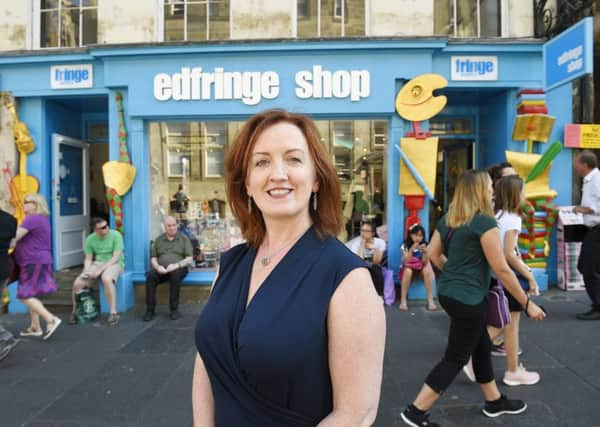Fringe Society needs help amid ‘change or die’ claims – Brian Ferguson


By then, the Fringe Society’s chief executive Shona McCarthy was under a barrage of criticism for her response to campaigners demanding better pay and conditions for people working at the event. Three years after her appointment, she is in the firing line of critics of the Fringe for robustly defending the way many venues and companies operate. Ms McCarthy did not hold back in condemning the “aggressive” and “vilifying” tactics adopted by Fair Fringe – a campaign launched in 2017 to tackle what it described as “widespread exploitation and even illegal practices” at the festival.
A dossier published last month on one of the most high-profile producers, C Venues, seems to have been the final straw for the Fringe Society and it hit back. Linked to the Unite trade union and the Scottish Labour Party, and officially endorsed by the city council, Fair Fringe stepped up its efforts last summer with a report highlighting “unfair and unsafe” working conditions that it described as “so common they are now accepted as the status quo”. By the end of the Fringe, it had focused its sights on C Venues, producers of more than 200 shows a year, by naming it the winner of two new “Bad Boss Awards” for practices such as classing staff as volunteers and paying them £200 for a month’s work. The campaign turned up the heat up further in January with the publication of a detailed 10-page dossier accusing the company of failing to meet 10 out of 11 points on its council-backed charter. The campaign then demanded C Venues be banned from its programme and website unless action was taken.
Advertisement
Hide AdAdvertisement
Hide AdWhile saying the dossier was focused on “unsubstantiated allegations from a very small number of people”, C Venues’ artistic director Hartley Kemp vowed to take action to ensure there is no repeat of issues that were highlighted and to ensure its volunteering programme meets all industry standards in future.
Ms McCarthy, however, has gone on the offensive, accusing Fair Fringe of portraying the likes of Kemp as “evil megalomaniacs” and of being more interested in ”hyperbole” and “exaggeration” than the reality of the economics involved in running venues, while dismissing suggestions the Fringe is a huge commercial enterprise.
She also insisted it would be unviable for the Fringe to impose the Living Wage on all venue operators and producers in its programme and expressed empathy for cultural entrepreneurs struggling to “wash their faces economically at the event”.
She has been at the Fringe long enough to know exactly how its huge range of venues are run. Some are represented on her own board. She seems genuinely concerned about the long-term impact of the campaign and how unrealistic some of its demands are.
But the event, which is estinated to be worth more than £200 million to the economy, will have a prolonged PR problem unless she can persuade the activists to ease off and give the Fringe Society time to revolutionise the way venue workers are treated across the board.
Comedian Mark Thomas was among those to lay it on the line for her yesterday, declaring the Fringe “must change or die”. Although she has the crucial leadership role, Ms McCarthy cannot deliver this alone.
It is time for all of the Fringe’s key players to rise to the challenge.
